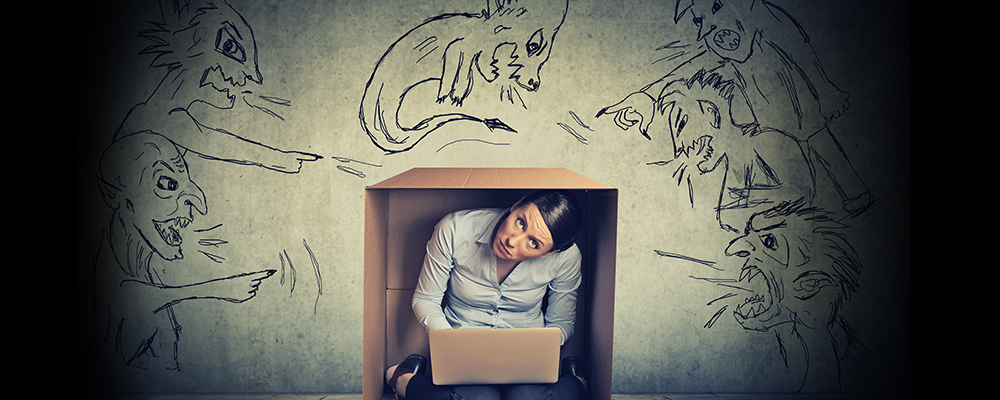Latest Videos | Latest Articles
1. What is social phobia?
It is usual and common to feel shy and nervous in some situations, for example when giving a public speech or when meeting someone in authority. However, there are people who experience much more than nervousness in these kinds of situations. This extended nervousness interferes with everyday tasks, such as speaking on the phone, eating/drinking in front of others, using public restrooms, and interacting with others. For these people being the center of attention causes an intense sense of anxiety and as a result they tend to avoid social situations. These people suffer from social anxiety disorder, also known as social phobia. A common characteristic in people who suffer from social phobia is that they experience a strong fear of being embarrassed in social situations and worry about social situations way before they happen.
2. Causes, signs and symptoms
Social phobia can be inherited from family members and this genetic predisposition sets the stage for social phobia to occur. However, there are other factors that contribute to the development of social phobia, such as severe stress, major life events, environmental factors and negative social interactions. Introvert personality traits including shyness and low self-esteem can also play an important role in the development of social phobia. Researchers have also suggested that parenting could influence the development of social phobia. If parents are anxious, worried or over-protective towards their children, or if they fail to show enough affect towards their children during their upbringing, then this could contribute to the development of a social phobia.
People who experience a social phobia regularly report physical symptoms, such as increased heart rate, nausea, stomach pain, difficulties breathing, muscle tension and an “out of body” feeling. People who suffer from social phobia tend to experience cognitive, emotional and behavioural distortions in social situations. This could include feeling very anxious in social situations; being afraid that they will be embarrassed and that other people will judge them; feeling insecure about their relationships; have a fear that other people will see their nervousness; worry about an event way before it happens and over-analyze their performance after the event. It is not unusual that these symptoms are followed by severe anxiety or panic attacks in social situations. People who suffer from social phobia may also have a hard time socialising with people and they regularly blush or sweat when they talk to others. They commonly tend to avoid eye-to-eye contact and may also avoid typical daily events such as using a public restroom, dating, attending parties, and entering a room late after others have already taken their seats. It is not uncommon that people with social anxiety disorder miss work or school as a result of their anxiety and subsequent coping strategies.
3. Diagnosis
The most common and known symptoms of social anxiety disorder is the marked fear triggered by the exposure to potential social embarrassment. Another symptom is that these potential situations are faced with extreme anxiety about being judged. As a result these situations are commonly avoided. Social phobia can be diagnosed when someone experiences the above symptoms for a duration of at least 6 months. Social phobia can be limited to the fear of one specific situation (e.g. public speaking) or it can be brought on by a broader fear of all social situations
4. Social Phobia Treatment
Social phobia is generally treated with psychotherapy, medication or both. The choice of treatment depends on the severity of the disorder. According to the National Institute for Health Care Excellence (NICE) the recommended psychotherapy is Cognitive Behavioural Therapy (CBT). This type of therapy focuses on the connection between thoughts, emotions, and behaviours; and teaches the person new ways of thinking and behaving that may help to reduce anxiety and fear in social situations. Over time irrational thoughts of social scrutiny are changed and behavior is altered as a consequence. This type of therapy may also include the development and practice of new social skills.
Social phobia can also be treated through the use of medication and your GP will be able to provide you with guidance on what medication to take. At present two types of medications are commonly used to treat social phobia – antidepressants and anti-anxiety medications. Some of these medications start working immediately whilst others take several weeks to start working. Common to all medication is that it may cause side effects and some medication should not be taken for prolonged periods of time.










